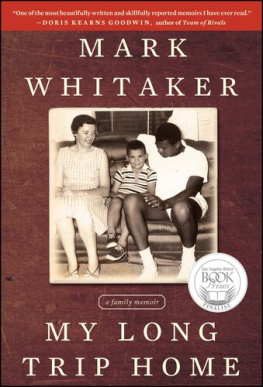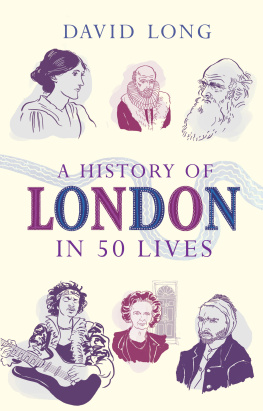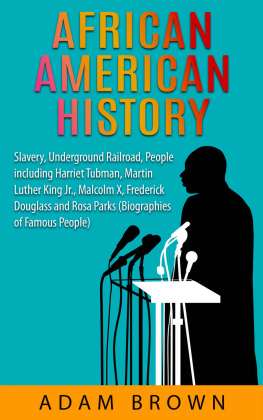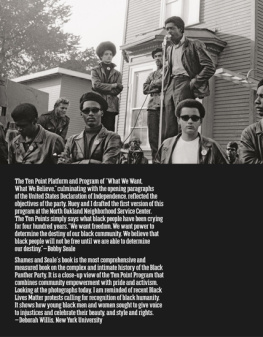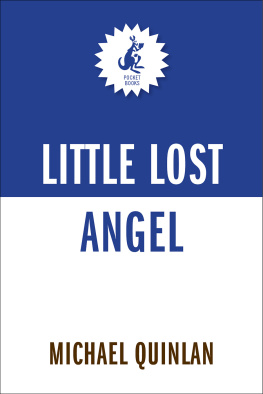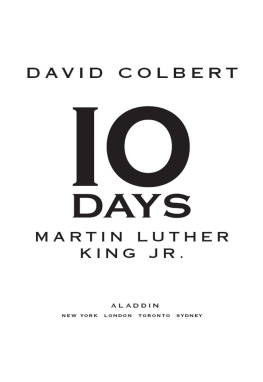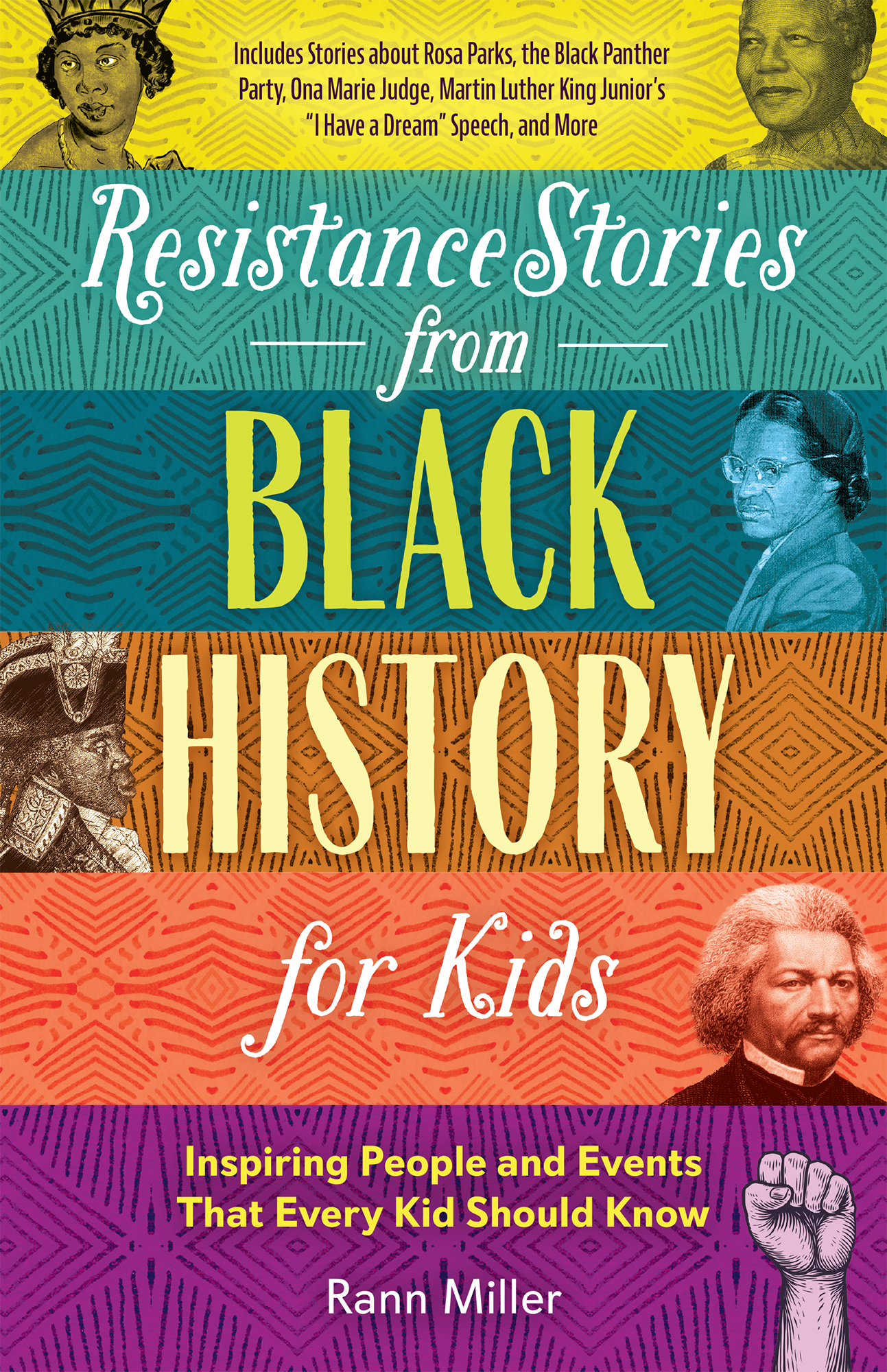Contents
Guide
Includes Stories about Rosa Parks, the Black Panther Party, Ona Marie Judge, Martin Luther King Juniors I Have a Dream Speech, and More
Resistance Stories from Black History for Kids
Inspiring People and Events That Every Kid Should Know
Rann Miller
To RJ: May the Father allow you access to enjoy these stories in Glory.
To Jaxson, Kennidi, and Lyndyn: This book was written for you, so you continue to discover the missing pages of world history and share them with your children.
To Dad: Ill miss you. Until we meet again.
FOREWORD
When people look in a mirror, they hope to see their own image reflected back to them. Somewhere in that mirror they want to see themselves. But imagine what it is like to look in a mirror and see everyone else except you. Or imagine what it would be like to see an image of yourself in the mirror, but it is a caricature. Being rendered something that is less of yourself has happened to Black people for hundreds of years.
For far too long, Black people were either left out of or erased from textbooks and classrooms. If we, Black people, are included, it is an inclusion wrapped in lies, evasions, half-truths, and distortions. Think of mirrors at a carnival that make a person look tall and stretched thin, or fat, or twisted, or squiggled (something that squirms or wriggles, or has loops and curls, or is S shaped or zigzagged).
In this book, Rann Miller seeks to restore Black people to the textbooks and correct the lies that have endured for centuries. As Miller makes clear, the history of Black people, even the Black people in the United States, is a part of world history, not only U.S. history. He challenges us to understand history through a much larger frame, a frame larger than, for example, tobacco, sugar, or cotton plantations. Miller challenges us to see history through a lens larger than a ghetto or a prison. The history of Black people did not begin with slavery or the triangular Atlantic slave system.
Black people, as a part of world history, have a history that goes back thousands of years in Africa. That history encompasses Nile Valley civilizations, ancient Nok (in what is now northern Nigeria), and numerous other ancient and medieval civilizations. (The word medieval refers to the European Middle Ages, roughly 5001499 CE.) One of the great examples of medieval civilization in Africa was the Mali empire and its fantastically rich ruler Mansa Musa, about whom Miller writes.
Furthermore, people want and need heroes. For too long, Black people were left out of official history or presented only as slaves and descendants of slaves. This had several damaging effects. Not only did it whitewash history and render Black people invisibleit also taught Black people to bow down and worship white people as the only people who contributed anything of worth to civilization (so often defined as Europe and the West, with an obligatory mention of ancient Mesopotamia thrown in).
The omission of Black people from history also leaves Black people without heroes to admire and respect and desire to emulate. Miller restores Black heroes for the reader. These heroes range from leaders of the Haitian Revolution to Harriet Tubman, Malcolm X, Nelson Mandela, and Fannie Lou Hamer. Heroes teach us that things can be changed for the better. We are not doomed, hopeless victims. We can overcome and prevail and succeed.
Sometimes heroes are ordinary people who do extraordinary things. In 2020, a white police officer knelt on the neck of a Black man, George Floyd, in Minneapolis, Minnesota, for more than nine minutes. Floyd died as a result. This murder was filmed on a cell phone by a Black teenager, Darnella Frazier. Despite challenges and intimidation, she unflinchingly filmed the entire episode. The whole world saw the horror of what had taken place.
Darnella Frazier, an ordinary teenager, a youngster, remained determined and did an extraordinary thing. Darnella Frazier is an example of a modern hero, an ordinary person doing an exceptional thing.
Rann Millers book is an important corrective to the omissions and distortions of past scholarship. It is a work of restoration that is long overdue. Young people and parents alike will be grateful for this valuable resource. It follows in the tradition of John Henrik Clarke, Arturo Schomburg, and Carter G. Woodson, among others, who have endeavored to teach us that Black history is a part of world history also.
Dr. Wayne Glasker
Professor Emeritus, History
Rutgers, the State University of New Jersey
INTRODUCTION
In high school, I took an honors history class during my sophomore year. The course was World and European History. I took the course because of my love of history. I learned about the cultural, political, and economic roots of the Western world, namely, the United States, through studying the empires of Europe and the history of the Catholic Church. It was interesting. More interesting to me, though, was the question of why the school didnt offer a class on African history. The more European history I learned, the more my mind raced back to the questionwhere was the course on African studies?
It became clear to me that those in charge of creating classes didnt believe that Africa had a history worth exploration or study. I knew that wasnt true. Years later, I was introduced to the historian John Henrik Clarke and his writings on African history. Clarke shared in his writings that he was influenced to learn and teach the history of Africa by the historian Arturo Schomburg, who described himself as a Puerto Rican of African descent. In his first conversation with Schomburg, Clarke told Schomburg of his desire to know the entire history of African people in the world. Schomburg responded:
What you are calling African history and Negro [Black] history is nothing but the missing pages of the world history. You will have to understand more about world history in order to understand who displaced our people from its pages. Go study the history of your oppressor. Once you know the history of your oppressor and why he had to oppress you, you will also learn why he had to remove you from the respectful commentary of human history.
That course in high school reaffirmed what all my other history courses had shown: Black history began with the triangular slave trade, and before that there was no other history worth the time to learn about. But what that course also did was lead me to reach logical conclusions: Africans must have already existed for Europeans to know that there were people to capture. Therefore, Africans had a history before the arrival of Europeans. Also, Africa had to have value that Europe did not havein land, resources, and peopleor why would Europeans venture into Africa in the first place?
I concluded that culture, knowledge, and skills were transported on those ships to the Americas. To the contrary of what I heard growing up, Africa has played a major role in the story of European domination and uniqueness. Africans provided a blueprint for explorers to reach the new world. Stolen African gold built European empires, and stolen African people built the American empire.
Black people have remained key players in the continuing story of the United States. For example, Black artists continue to shape popular culture, and Black activists push the conscience of the country to challenge injustices found in our policies and postures against one another.


